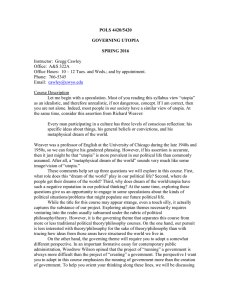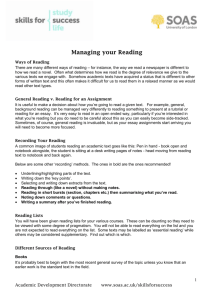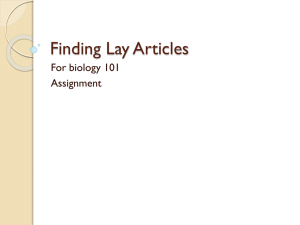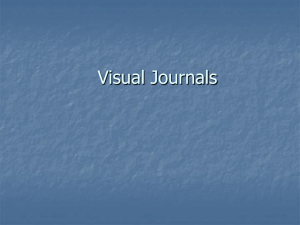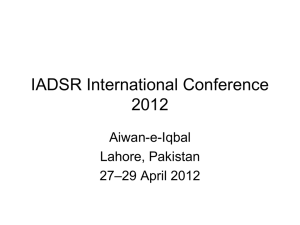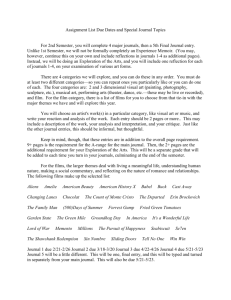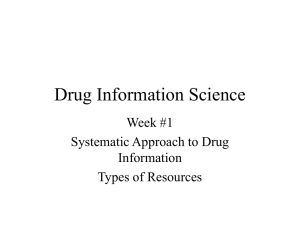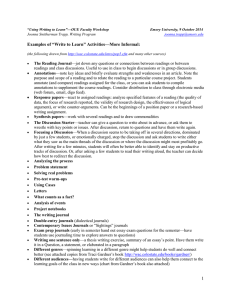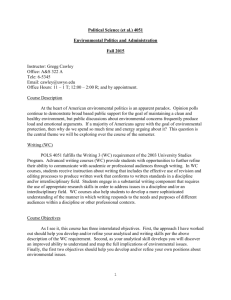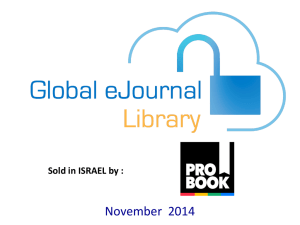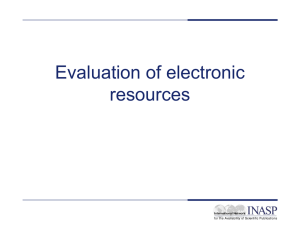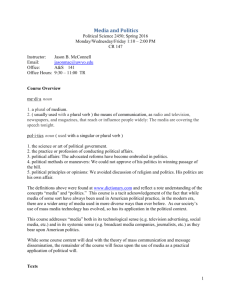Political Science 4050/5050
advertisement
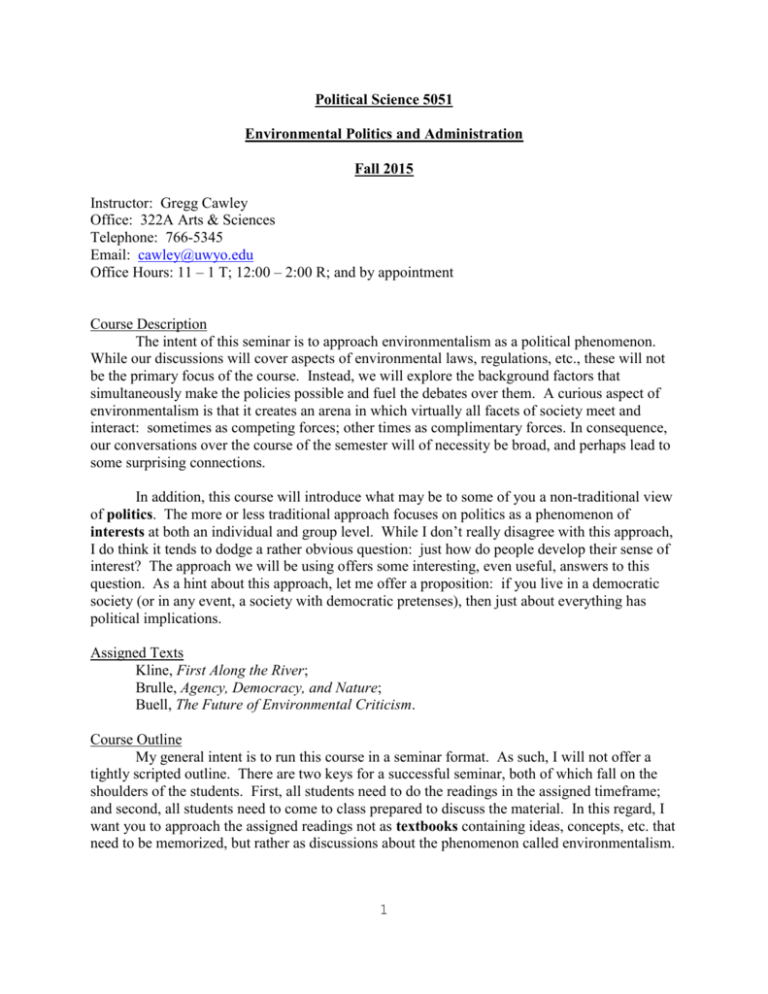
Political Science 5051 Environmental Politics and Administration Fall 2015 Instructor: Gregg Cawley Office: 322A Arts & Sciences Telephone: 766-5345 Email: cawley@uwyo.edu Office Hours: 11 – 1 T; 12:00 – 2:00 R; and by appointment Course Description The intent of this seminar is to approach environmentalism as a political phenomenon. While our discussions will cover aspects of environmental laws, regulations, etc., these will not be the primary focus of the course. Instead, we will explore the background factors that simultaneously make the policies possible and fuel the debates over them. A curious aspect of environmentalism is that it creates an arena in which virtually all facets of society meet and interact: sometimes as competing forces; other times as complimentary forces. In consequence, our conversations over the course of the semester will of necessity be broad, and perhaps lead to some surprising connections. In addition, this course will introduce what may be to some of you a non-traditional view of politics. The more or less traditional approach focuses on politics as a phenomenon of interests at both an individual and group level. While I don’t really disagree with this approach, I do think it tends to dodge a rather obvious question: just how do people develop their sense of interest? The approach we will be using offers some interesting, even useful, answers to this question. As a hint about this approach, let me offer a proposition: if you live in a democratic society (or in any event, a society with democratic pretenses), then just about everything has political implications. Assigned Texts Kline, First Along the River; Brulle, Agency, Democracy, and Nature; Buell, The Future of Environmental Criticism. Course Outline My general intent is to run this course in a seminar format. As such, I will not offer a tightly scripted outline. There are two keys for a successful seminar, both of which fall on the shoulders of the students. First, all students need to do the readings in the assigned timeframe; and second, all students need to come to class prepared to discuss the material. In this regard, I want you to approach the assigned readings not as textbooks containing ideas, concepts, etc. that need to be memorized, but rather as discussions about the phenomenon called environmentalism. 1 I will keep you posted in class as to where you should be in your readings. You are, of course, free to read ahead if you like. In addition to the assigned texts, we will be incorporating some “non-traditional” sources including the internet, movies, etc. Course Grade Your final course grade will be determined by your performance in three areas: (1) regular class attendance (30%); (2) weekly journals (40%); and (3) a final essay (30%). The class attendance component is self-explanatory, however, I realize that situations do emerge that might require you to miss class. If you encounter such situations get in touch with me and I’ll make a judgment about whether or not it will constitute an excused absence. I’m much easier to deal with if you get in touch with me before missing class than afterwards. You will submit a brief (2 – 3 pages) journal every week (due by 5 PM on Fridays). The basic assignment is to react to our seminar discussion, however, I don’t want a summary of the discussion. You can also use the journals to talk about the readings and current events that strike you as fitting into our discussions. You don’t have to do research for the journals, and you don’t have to use formal writing style (footnotes, etc.). I will grade them on what I call a pro-rated pass/fail basis. I won’t grade each journal entry, but rather the journals as a package. So, if you turn in all journals you get 40 points toward you final grade. If you turn in fewer than all, you will get a percentage of the 40 points—you only turn in half the journals, you get 20 points. I want the journals submitted in electronic format. The summary essay will be due during finals week. Once again, the summary essay is not a formal research paper but rather a thought/reflective essay (10 – 15 pages) based on the material we have covered over the course of the semester. We will discuss this in class. Other Matters Academic Dishonesty: The Political Science Department, the University of Wyoming, and your professor take a very dim view about academic dishonesty. For a definition of academic dishonesty and the administrative procedures for addressing it go to this site: http://www.uwyo.edu/generalcounsel/_files/docs/uw-reg-6-802.pdf . Students found guilty of academic dishonesty in my courses will receive an F for the course. Special Needs: “It is University of Wyoming policy to accommodate students, faculty, staff, and visitors with disabilities. If you have a physical, learning, sensory, or psychological disability and require accommodations, please let me know as soon as possible. You will need to register with University Disability Support Services (UDSS) in the Student Educational Opportunity offices, Room 330 Knight Hall, and provide UDSS with documentation of your disability.” 2
